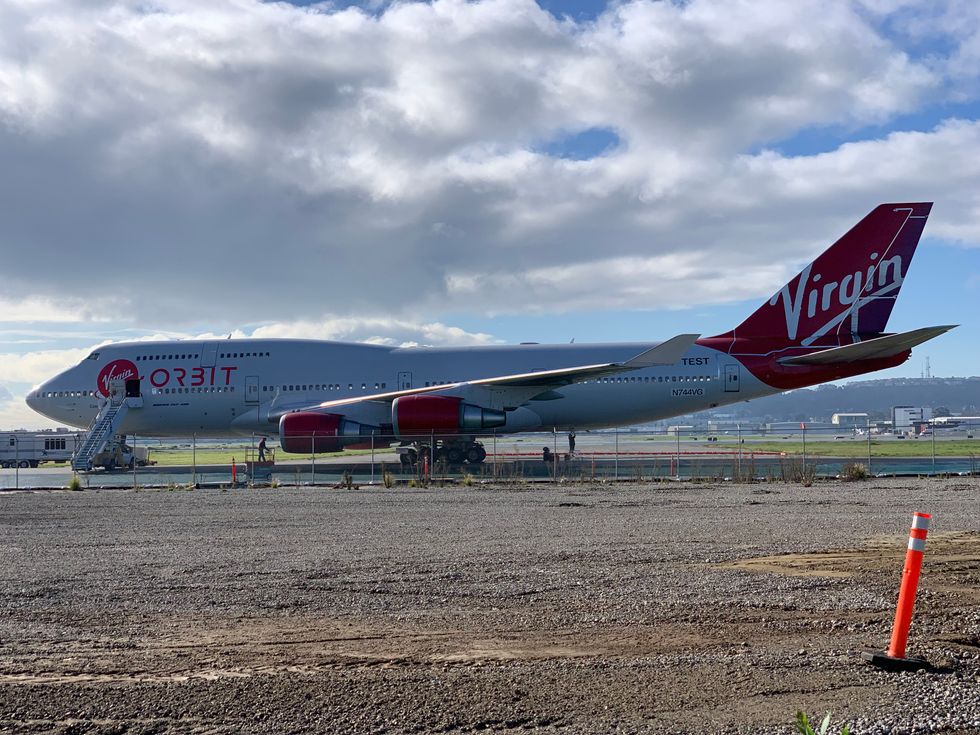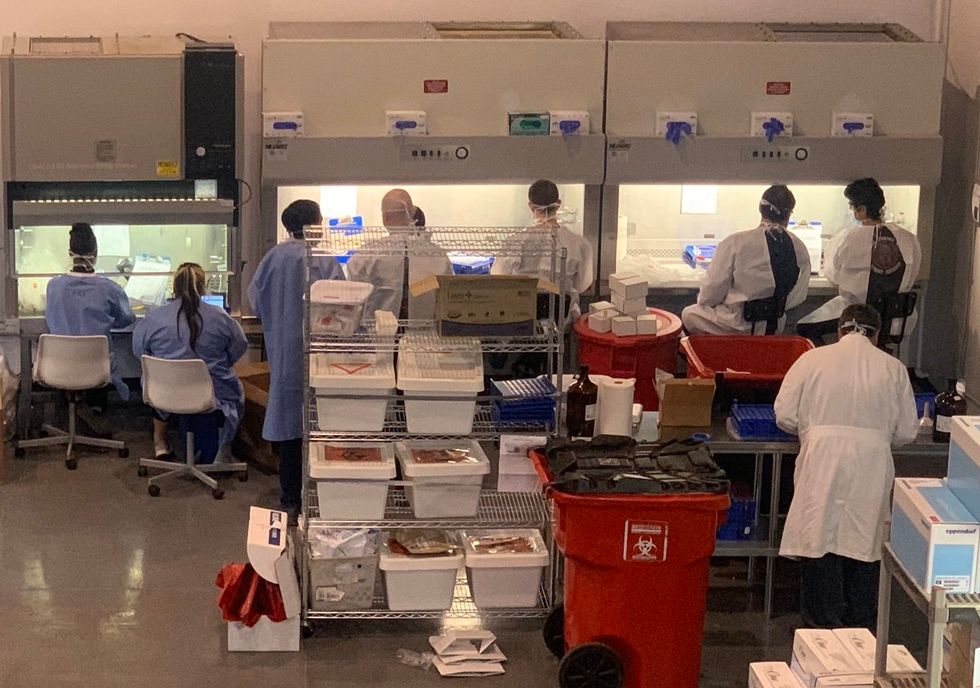Coronavirus Updates: Virgin Orbit Gets OK on Ventilators, Curative Signs Pact With Air Force

Here are the latest headlines regarding how the novel coronavirus is impacting the Los Angeles startup and tech communities. Sign up for our newsletter and follow dot.LA on Twitter for the latest updates.
Today:
- Curative signs pact With Air Force to deploy COVID-19 tests
- Sir Richard Branson's Virgin Orbit gets FDA approval on new ventilator design
- New report quantifies Q1 loss of L.A. filming days from COVID shutdown
New figures show COVID shutdown cut L.A. filming by 18% in Q1, set to free-fall

A new report from Film LA released Thursday reveals that filming days in L.A. in the first quarter of this year were down 18% compared to the same period last year. That number will plummet next quarter due to a county-wide filming moratorium that began on March 20.
In its forecast for Q2, Film LA has assumed the earliest date that filming could resume is June 1st -- and even then, only for small projects that can adhere to social distancing. Even if this scenario occurs--which FilmLA VP of Communications Philip Sokoloski admitted is optimistic--analysts already forecast that the shooting days lost this year so far are unrecoverable.
The timing of the shutdown is particularly bad for pilot season, which typically runs from February through May. In Q1, television took the largest hit, seeing a 20.6% decline in filming days. Feature film shoots fell 6.9%, while commercial shoots fell 12.5%. Reality shows, however, did see a Q1 uptick, of 11.7%.
Sir Richard Branson's Virgin Orbit gets FDA approval on new ventilator design

Sir Richard Branson's Virgin Orbit received approval from the U.S. Food and Drug Administration to begin immediate delivery of a new "bridge" ventilator designed and built by the satellite launch company. The Long Beach-based space company was given clearance through the FDA's Emergency Use Authorization, and expects to begin delivering ventilators to hospitals within the next few days.
"Virgin Orbit has leveraged its extensive engineering design, manufacturing, and operational capabilities to quickly design a novel ventilator, test prototype units, and ramp up production of these devices," the company said in a statement.
The device has been funded entirely by Virgin Orbit, and is a simple ventilator that's driven by a windshield-wiper motor. Physicians believe it can be used as a stop-gap solution until patients are able to be put on a standard ventilator.
Curative signs pact With Air Force to deploy COVID-19 tests

COVID-19 testing startup Curative and aerospace accelerator Gothams have signed an agreement with the U.S. Air Force to deploy its FDA-authorized oral fluid tests and comprehensive testing service to military personnel around the world.
"Broad testing is critical to our nation's ability to understand the COVID-19 pandemic, maintain operational readiness and restart the American economy," the companies said in a statement.
In this initial agreement, Curative will rapidly establish a new laboratory facility, fully operational this week, which will process up to 50,000 tests per day for the presence of COVID-19. In future phases of this agreement, Curative will establish eight testing locations across the U.S. to support testing for the U.S. population.
Curative has processed 75,000 tests amounting to about 20% of those administered in California, according to a spokesperson for the company.
Turner set up shop in a San Dimas lab in March and became an unsung hero in the battle to combat coronavirus in Southern California when he turned the focus of his company, originally meant to detect sepsis, to the pandemic. As part of this agreement with the Air Force, each Curative lab will have a daily capacity to examine 50,000 tests per day. Currently Curative has the capacity to scale to a network of 10 labs across the country for a total of 500,000 tests per day.
- Investors and Health Tech on the Front Lines of the Pandemic - dot.LA ›
- marsbio - dot.LA ›
- COVID-19 Test Kit-Maker Curative Inc.is Struggling to Ramp Up - dot ... ›
- curative-inc - dot.LA ›
- Coronavirus Test Kit Facility Aims to Produce 10K A Day in L.A. - dot ... ›



 Image Source: Revel
Image Source: Revel
